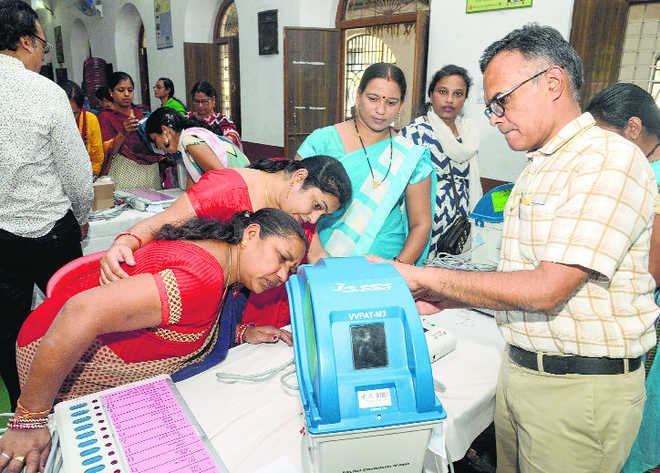
Analysis of variance: The book is particularly ignorant, and incorrect about how electoral politics works in India. It repeats baseless journalistic bromides about EVMs being unreliable, politicians wooing caste groups by offering them jobs, etc. Photo: PTI
M Rajivlochan
Democracy has been on the decline, note the authors of this book dourly as they scratch their head over the ubiquity of elections in the world and study the ways of electoral victors of the world. Had the authors been historically minded, they would have discovered that democracy has always been in decline, that elections are just a good way of giving people a feeling of being involved in the processes of governance and, a chance to get rid of their rulers without bloodshed.
The authors observe, rather sourly, that dictators who resort to elections last longer than those who do not. This the authors derive by comparing elections and their outcomes across the world.
This is a book on electoral strategies adopted by winning candidates across different countries in the world where democracy is different from what Americans experience in America or imagine its working in the barely populated countries of northern and western Europe. The book is unclear on what it considers to be proper democracy or representative government but since European democracies don’t come for any adverse comment, it seems the authors presume them to be close to being perfect.
For all other democracies, especially the social democracies in Arabia, Africa, most of Asia and South America, the authors show them up to be based on elections that are neither proper nor representative. The working of the American electoral system does come in for a number of adverse observations. Most of them are about how elected politicians like Donald Trump manipulated voters. But the authors ignore the point that the minders of most previous presidents in America too manipulated voters just as much. The only thing different about Trump was, we notice, that he did it more blatantly, was not apologetic about it and, did not allow himself to be controlled by the minders. If anything, he got rid of most of his minders soon after elections, much like Hitler and Mao got rid of those who helped them come to power.
The one change in the present world that the authors fail to notice is that there has been an enlargement of scales in the world today. Popular rulers of earlier times, like Harun ul-Rashid, were able to reach out to the public by roaming around their cities in disguise. They ruled over about a lakh or so of people. Even a huge country like India had a population of just about 17 million in Akbar’s time. Today, with the exception of the Scandinavian countries, politicians need to reach out to a much larger number of people. Varanasi, for example, has over a million voters. Elections have proven to be the most effective way of reaching out to them.
Indian readers, who are heading into an acrimonious General Election, need to be warned that this book is neither about India nor is it about Indian democracy. In fact, it is particularly ignorant, and incorrect about how electoral politics works in India. Mostly, it repeats baseless journalistic bromides about EVMs being unreliable, politicians wooing caste groups by offering them jobs, etc. If the Indian data is anything to go by, then one suspects that the data about Africa and Arabia, too, would be based on trite observations by journalists — except that journalists at least talk to their taxi drivers in order to get electoral insights.
There is no mention in this book of the fact that India has been able to create one of the most robust institutional systems to hold elections, that the boundaries of electoral constituencies in India are not subject to manipulation as it happens in America. And that caste is but a political trope in India to indicate the politicians’ commitment to provide social justice to all. If you really want to understand how to win elections in India, dump this book and read the various reports coming from the election studies of the Centre for the Study of Developing Societies.



























